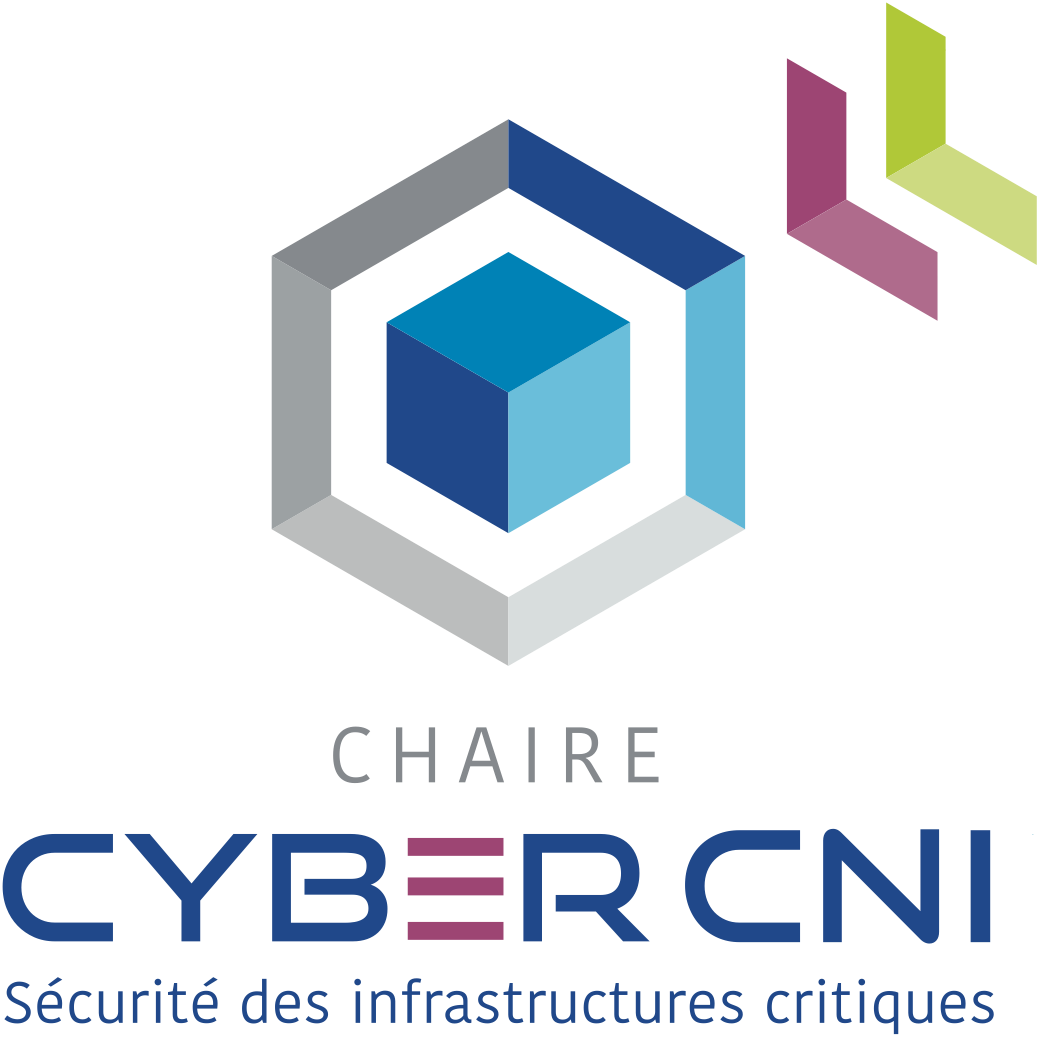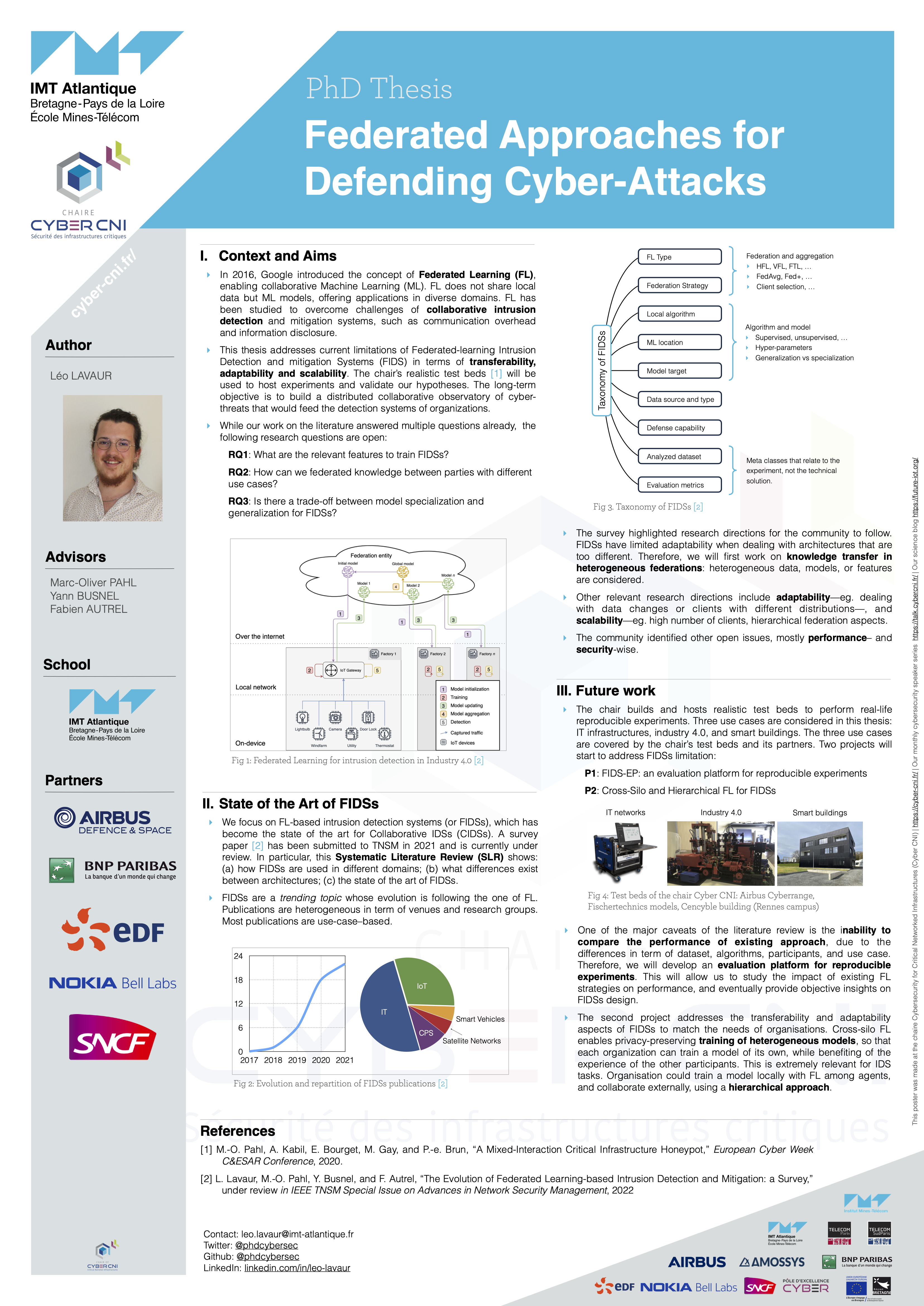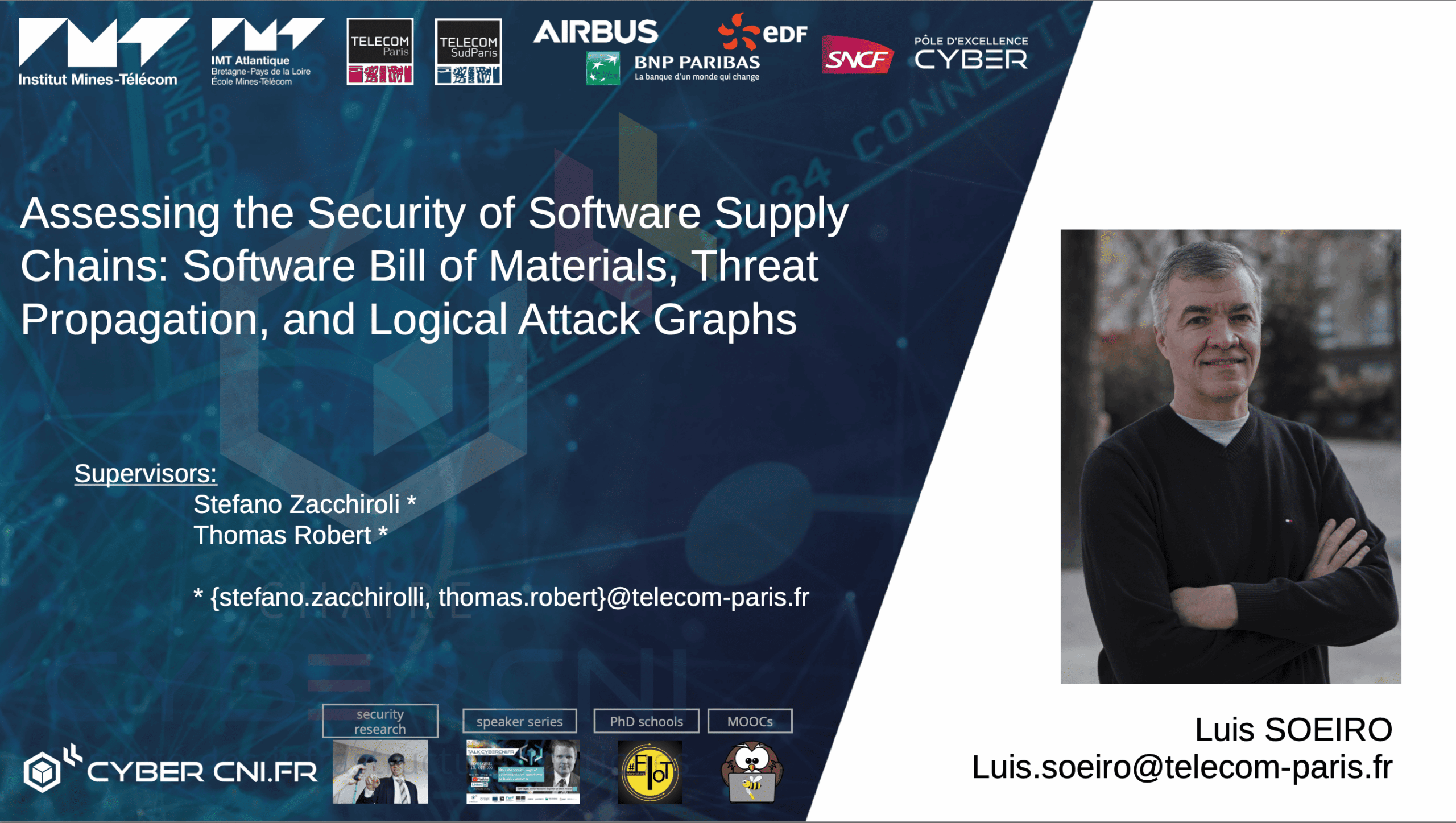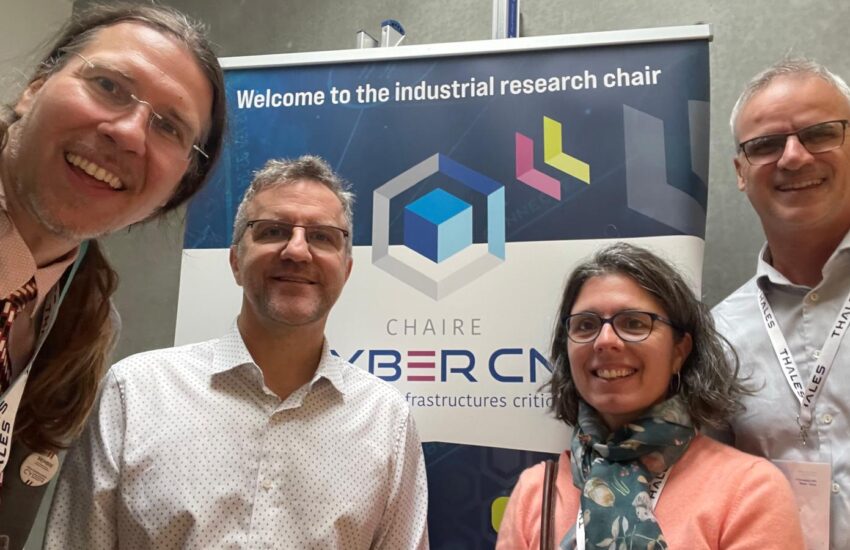IMT Symposium: Léo Lavaur, “Federated Approaches to Defend Cyber-Attacks”
At the occasion of the IMT symposium on “Crisis Management and Digital Technologies: new Threats and new Solutions”, our PhD student Léo Lavaur presented his poster on his PhD: “Federated Approaches to Defend Cyber-Attacks”.
The chaire cyberCNI.fr participated at IMTs well-known symposium series with a strong delegation. Our chairholder Marc-Oliver Pahl co-organized the march edition together with the topic leaders from the other IMT schools.
Léo Lavaur’s thesis addresses current limitations of Federated-learning Intrusion Detection and mitigation Systems (FIDS) in terms of transferability, adaptability, and scalability. The chair’s realistic test beds will be used to host realistic experiments and validate hypotheses. The long-term objective is to build a distributed collaborative observatory of cyber-threats that would feed the detection systems of organizations.
IMT Symposium on Crisis Management and Digital Technologies: new Threats and new Solutions
The IMT is developing research and training activities at the crossroads of cybersecurity and crisis management, enabling it to train company personnel in these subjects and to develop innovative cyber risk management solutions.
The objective of this conference was to take stock of these research activities and to identify some strategic elements that IMT will pursue in the future…
Crises have long been accidental or caused by human error. The increasing digitization of our infrastructures means that crises can now be generated by cyber-attacks, as evidenced by recent incidents (shutdown of certain hospitals, factories, or infrastructures under the impact of ransomware). Some of these incidents are clearly of a nature that puts the survival of the organization that is the victim of the attack at stake.
Beyond the management of cyber-attacks against information systems, we are therefore observing new needs for the management of crises of digital origin, involving the company’s management teams, to understand the consequences of cyber-attacks (for example on personal data), to comply with complex regulations, to learn how to communicate, to mitigate the impact of the attacks on the organization, and to return to a mode of operation in line with expectations.
Digital tools are also essential to manage certain crises, as shown by the development of contact tracing applications during the COVID crisis, and they are also subject to debate, both for their impact on civil liberties and the epidemiological effectiveness of the technologies deployed.
About the chaire Cyber CNI
The IMT Cyber CNI Chair (cyberCNI.fr) is hosted by IMT Atlantique on the Rennes campus. It studies the security of critical infrastructures under the direction of Marc-Oliver PAHL and with the collaboration of its industrial partners Airbus Cybersecurity, Amossys, BNP Paribas, EDF, Nokia Bell Labs and SNCF, as well as institutional partners such as the Pôle d’Excellence Cyber and the Brittany region, and academic partners IMT Atlantique, Télécom ParisTech and Télécom SudParis.
- We welcomed the CEO of EDF - October 30, 2023
- Tutorial on Federated Learning at the Networks of the Future conference 2023 in Izmir - October 27, 2023
- IMT Symposium: Léo Lavaur, “Federated Approaches to Defend Cyber-Attacks” - April 13, 2022










